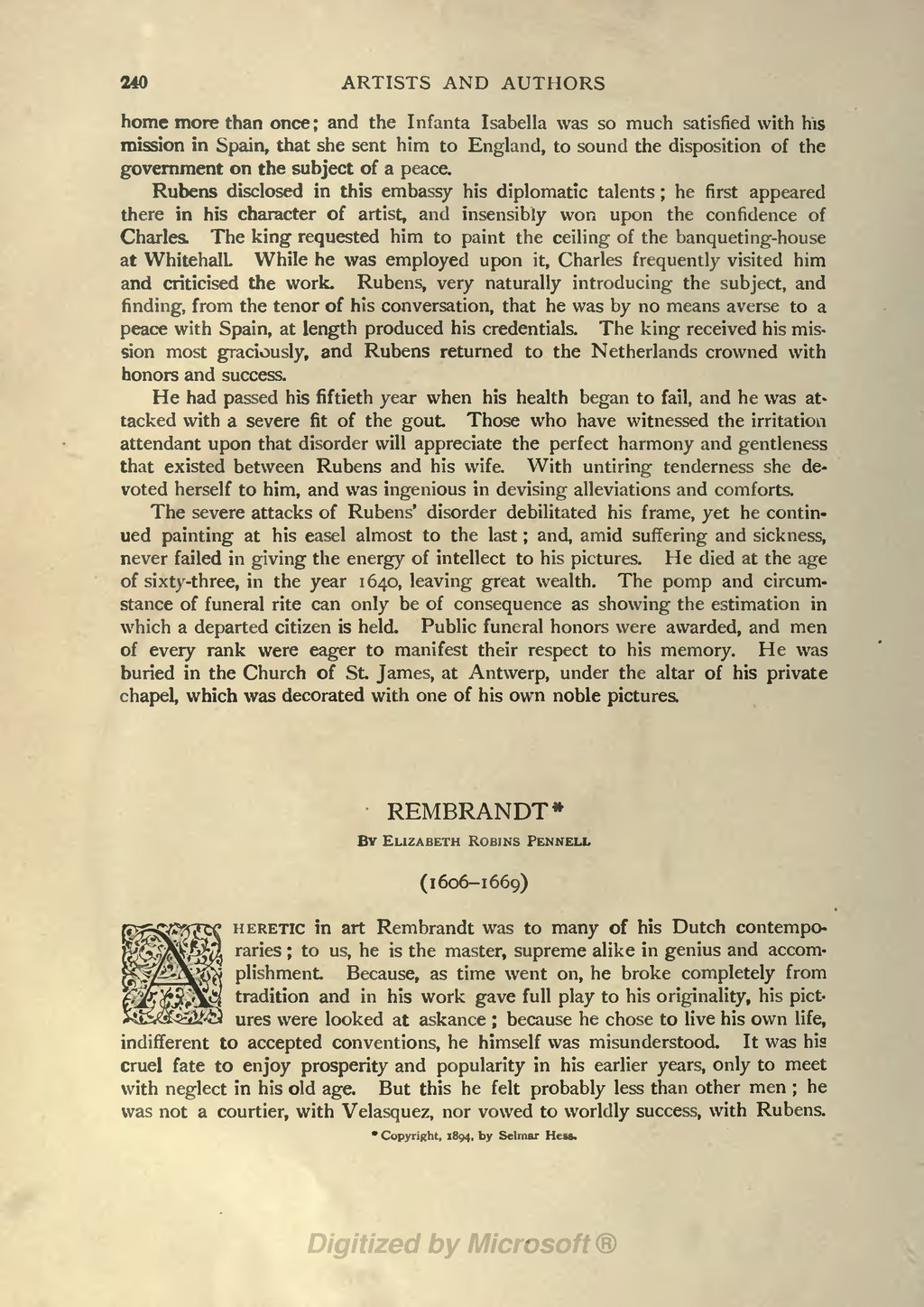240 ARTISTS AND AUTHORS home more than once; and the Infanta Isabella was so much satisfied with his mission in Spain, that she sent him to England, to sound the disposition of the government on the subject of a peace. Rubens disclosed in this embassy his diplomatic talents ; he first appeared there in his character of artist, and insensibly won upon the confidence of Charles. The king requested him to paint the ceiling of the banqueting-house at Whitehall. While he was employed upon it, Charles frequently visited him and criticised the work. Rubens, very naturally introducing the subject, and finding, from the tenor of his conversation, that he was by no means averse to a peace with Spain, at length produced his credentials. The king received his mis- sion most graciously, and Rubens returned to the Netherlands crowned with honors and success. He had passed his fiftieth year when his health began to fail, and he was at- tacked with a severe fit of the gout Those who have witnessed the irritation attendant upon that disorder will appreciate the perfect harmony and gentleness that existed between Rubens and his wife. With untiring tenderness she de- voted herself to him, and was ingenious in devising alleviations and comforts. The severe attacks of Rubens' disorder debilitated his frame, yet he contin- ued painting at his easel almost to the last ; and, amid suffering and sickness, never failed in giving the energy of intellect to his pictures. He died at the age of sixty-three, in the year 1640, leaving great wealth. The pomp and circum- stance of funeral rite can only be of consequence as showing the estimation in which a departed citizen is held. Public funeral honors were awarded, and men of every rank were eager to manifest their respect to his memory. He was buried in the Church of St. James, at Antwerp, under the altar of his private chapel, which was decorated with one of his own noble pictures. • REMBRANDT* By Elizabeth Robins Penneia (1606- I 669) heretic in art Rembrandt was to many of his Dutch contempo- raries ; to us, he is the master, supreme alike in genius and accom- plishment. Because, as time went on, he broke completely from tradition and in his work gave full play to his originality, his pict- ures were looked at askance ; because he chose to live his own life, indifferent to accepted conventions, he himself was misunderstood. It was his cruel fate to enjoy prosperity and popularity in his earlier years, only to meet with neglect in his old age. But this he felt probably less than other men ; he was not a courtier, with Velasquez, nor vowed to worldly success, with Rubens. • Copyright, 1804, by Selmar Hess.
